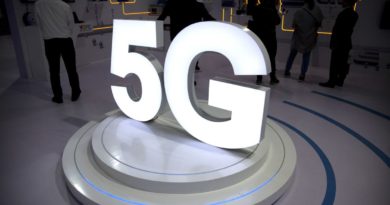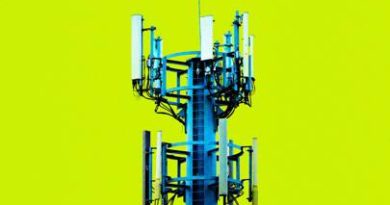5G coronavirus conspiracy theories rife in UK

An Ofcom survey suggests that unfounded conspiracy theories linking the coronavirus pandemic with the rollout of 5G technology has become the most common false information seen by Britons.
The telecoms regulator, which is closely monitoring how people in the UK are getting news and other information about the pandemic via a weekly survey of around 2,000 people, found that over half of Britons remembered seeing false claims about the wireless technology in the last week of the lockdown.
In April, conspiracy theorists who believe that 5G technology is causing or aggravating the coronavirus pandemic began attacking mobile masts (including masts which do not provide a 5G signal) and telecommunications engineers. At least 20 arson attacks targeting mobile masts were recorded over the four-day Easter weekend alone, including an attack on a mast serving Birmingham’s NHS Nightingale hospital which is dedicated to treating Covid-19 patients.
The attacks on engineers and infrastructure have sparked sharp rebukes from industry figures and politicians, who demanded that social media platforms should take responsibility for clamping down on the spread of these conspiracy theories.
Ofcom found that exposure to conspiracy theories linking 5G with the novel coronavirus has increased from 0 per cent in the first week of monitoring to around 50 per cent in the third week.
In more positive news, other disinformation related to Covid-19 appears to be reaching fewer people. Exposure to false information, such as that Covid-19 can be combatted by gargling with salt water, drinking more water, or drinking lemon juice, has fallen.
Overall, those who have seen false information about coronavirus is at 50 per cent: a small increase from 46 per cent in the first week. This may be due to mainstream media outlets debunking widely-spread false claims as part of their reporting of the pandemic. People aged 16-24 were most likely to have seen this false information (59 per cent), while people aged 65 and above are increasingly likely to see false information (rising from 33 per cent in the first week to 46 per cent in the third week).
There also appears to be a slight increase in the number of people using fact-checking sites, increasing from 10 per cent in the first week to 15 per cent in the third week.
Ofcom is prioritising cases relating to false claims relating to coronavirus in an effort to stop the spread of damaging misinformation and disinformation. The unfounded story linking 5G with coronavirus became impossible for authorities to ignore when broadcaster Eamonn Holmes made comments implying support for the conspiracy theory on ITV’s This Morning.
The conspiracy theory has been catapulted to widespread prominence by influential figures explicitly or implicitly supporting it, including television presenter Amanda Holden, American actors Woody Harrelson and Jack Cusack, and athlete Novak Djokovic.
There is no evidence to suggest that 5G could be more harmful than ordinary sunlight, with the International Commission on Non-Ionising Radiation Protection basing its safety guidelines on more than two decades of research which have hinted at no risk whatsoever to public health. Covid-19 outbreaks also have no correlation with 5G rollouts, with countries such as Iran having high infection rates despite having no 5G service.
Sign up to the E&T News e-mail to get great stories like this delivered to your inbox every day.
*** This article has been archived for your research. The original version from E&T Magazine can be found here ***


